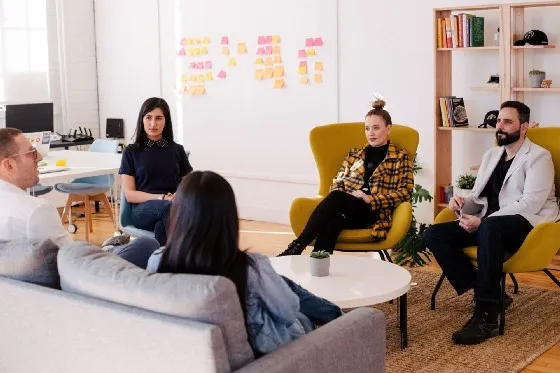Vetting accessibility vendors

It used to be there were just a handful of major accessibility vendors in the game. SSB Bart Group (now Level Access), Deque, and Cryptzone (now Cyxtera)
And then slowly, smaller players got into the game. And as disability/accessibility laws started to be passed in other countries (especially Israel), more vendors started to pop up.
Today, I can’t even open my LinkedIn home page without seeing a request from someone I have never heard of asking me to evaluate their services. At least 80 % of the “look at me” messages I receive are from vendors located outside of countries that have strong accessibility/disability laws.
How do you know which vendors are good and which ones are just talking a good game?
There are some basic questions (how long have they been doing this, how financially stable they are) that you will want to ask just about any company that you are thinking about entering into a business relationship with. Not going to go into those here, just the ones that specifically pertain to accessibility.
Questions to ask
When evaluating companies that provide accessibility solutions, here are a few things you may want to explore before choosing a vendor.
Question #1: Is the vendor’s site/solution accessible?
I cannot state how important this is. Anyone who has read more than two of my articles probably isn’t surprised to hear that I check the accessibility of every new app and website I think about engaging with. Vendors are no exception. I spend a few minutes looking at screen reader, multimedia access, keyboard use, and magnification tests at a minimum on every home page of every vendor that is trying to sell me something. If it sucks, I make sure they know I think so.
It never ceases to amaze me how many self-described Disability / Accessibility vendors or “experts” launch ridiculously inaccessible sites, from the color choices down to focus order
I do not understand why they got into this area of work if they think inaccessibility is OK. They are definitely not doing the world any favors by ignoring their own accessibility problems. They are REALLY not improving their standing in the eyes of potential customers. In effect, accessibility vendors with inaccessible sites and solutions want to make money from the trouble facing people with disabilities, while still ‘themselves’ being part of the problem. That is not OK.
Accessibility is NOT the place for “do as I say, not as I do”
I put this question first because if the answer is “the vendor’s site/solution isn’t accessible”, it doesn’t matter to me what the answers to the rest of the questions are, and I don’t need to waste my time asking them.
Question #2: What percentage of the vendor’s employees have disabilities that require assistive technology to use computers?
The emphasis here needs to be on EMPLOYEES. Some overseas vendors rely on subcontractors (largely from charities or not profits) if testers with disabilities are required. When the vendor’s employees don’t have disabilities:
the vendor’s employees may not be getting a whole lot of exposure to the disability world which weakens their approach;
additional communications barriers and delays will be created since the people providing the user-equivalent testing services can’t be reached directly or controlled by you, the procurer.
Question #3: Does the vendor pay employees with disabilities the same amount as employees without disabilities?
You would be surprised how often this comes up and not in a good way. It is perfectly legal in countries outside the US to pay employees with disabilities substantially less than employees without disabilities.
Question #4: What percentage of the vendor’s employees have accessibility or disability certifications?
CPACC, WAS, CPWA, Trusted tester — which certifications matter less than the fact that the vendor has dedicated time to certification, or has valued and been able to recruit people who obtained certifications elsewhere.
Question 5: What is the vendor’s accessibility methodology?
Any accessibility manager worth her stuff should be able to bore you into oblivion on this topic. Some things to explore if they don’t bring anything up would be
what tools do they use (and how do they prevent false positives/negatives)
how do they determine use cases
what steps do they go through when writing up a bug (level of detail, buddy checking, prioritization)
Question 6: How are new employees recruited and trained?
Yeah, I said I wasn’t going to cover generic questions. But this is even more important to accessibility vendors. Chances are you aren’t going to get a lot of employees with disabilities if your company prides itself on only recruiting from elite universities. Also, accessibility testing is as much art as it is science, so internal training and orientation are crucial.
Question #7: Is accessibility all the vendor does, or is it part of what they do?
Accessibility is really a niche market. Consulting generalists just don’t do as good of a job at it.
Question #8: Is the vendor proud to claim clients who have been on the wrong side of accessibility lawsuits in the US?
You have to be careful with this one, and allow the vendor to explain.
Maybe the client got sued in the middle of remediation
Maybe the remediation was done and the client relapsed. 21 % of lawsuits in 2019 are repeat.
Maybe the vendor advised against doing something but the client did it anyways and then got sued.
Maybe the vendor was contracted after the activities that resulted in being sued took place.
But if the vendor hasn’t got a good explanation, that might be a warning flag.
Did I miss a question that you think is important to ask accessibility vendors during an evaluation process? Please enter it in the comments or PM me.
Add a comment: